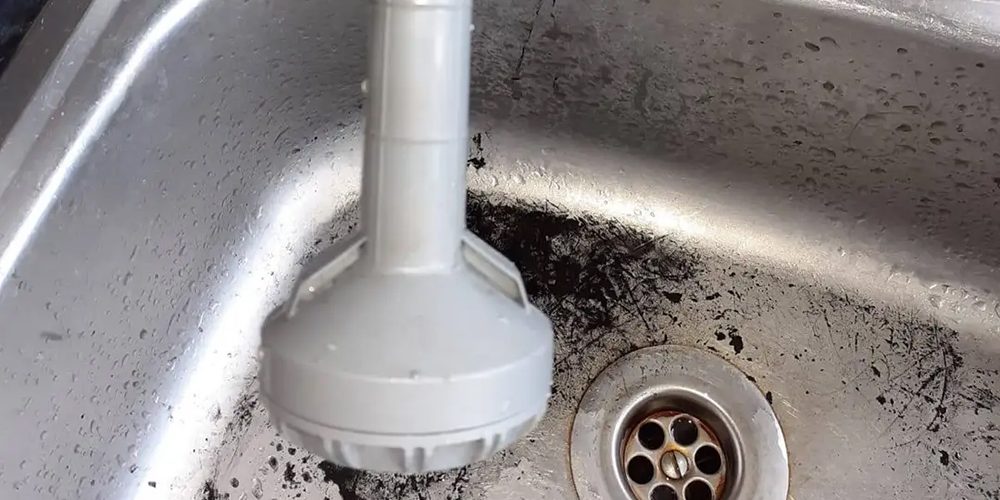The role of a magnetic filter is to keep your boiler and the rest of the heating system free from sludgy rust and other debris that can cause corrosion damage and unwanted blockages which if left untreated, will eventually prevent your boiler from functioning as it should and breaking down. Therefore, cleaning a magnetic filter is a crucial maintenance task for a heating engineer to ensure the heating system operates efficiently. Here is our detailed guide on how a professional heating engineer would clean a magnetic filter:
Tools And Materials
You will typically need:
- Adjustable spanner or wrench
- Screwdriver (if required for your filter type)
- Bucket or container
- Clean cloths or rags
- Protective gloves
- Replacement O-rings (optional, in case the old ones are worn out)
- Lubricant (suitable for O-rings, if needed)
Safety Precautions
Turn off the heating system: Ensure the heating system is turned off and allow it to cool down to avoid burns from hot water.
Isolate the system: Turn off the water supply to the heating system and close any isolation valves to prevent water from flowing while you work on the filter.
Step-by-Step Cleaning Process
- Locate the magnetic filter: Find the magnetic filter in the heating system. It is usually installed on the return pipe of the central heating system, close to the boiler.
- Prepare to remove the filter: Place a bucket or container underneath the filter to catch any water that may spill during the cleaning process. Wear protective gloves to avoid contact with any potentially dirty water or debris.
- Release pressure: If the system is pressurised, use the pressure release valve, or carefully open the bleed valve on a nearby radiator to release any pressure.
- Remove the filter: Use the adjustable spanner or wrench to loosen the nuts or fittings that secure the filter to the pipework. Carefully detach the filter unit, allowing any trapped water to drain into the bucket or container.
- Open the filter: Most magnetic filters can be unscrewed or opened by removing a cover or cap. You will more than likely need to unscrew it instead of pulling it – use a screwdriver if necessary. Be cautious as the inside of the filter may contain sludge and debris.
- Clean the magnet: Inside the filter, you will find a magnet covered in black sludge (magnetite) and debris. Remove the magnet and use a clean cloth or rag to wipe away the sludge and debris. Ensure the magnet is thoroughly cleaned.
- Clean the filter body: Use the cloth to clean the inside of the filter body, removing any remaining sludge or debris. Check for any signs of damage or wear, especially on the O-rings or seals.
- Reassemble the filter: If the O-rings or seals are worn out, replace them with new ones. Apply a suitable lubricant to the O-rings if necessary to ensure a good seal. Reinsert the clean magnet into the filter body and securely close the cover or cap.
- Reattach the filter: Position the filter back into the pipework and tighten the nuts or fittings securely using the adjustable spanner or wrench.
- Refill and repressurise the system: Open the isolation valves to allow water to flow back into the system. If needed, refill the system to the correct pressure using the filling loop. Bleed any air from the radiators to ensure there are no airlocks.
- Check for leaks: Turn the heating system back on and carefully check around the filter and connections for any signs of leaks.
- Dispose of waste properly: Dispose of the sludge, debris, and dirty water appropriately, following local regulations and guidelines.
- Final checks: Ensure the heating system is operating correctly and that there are no unusual noises or issues. Monitor the system for a brief period to ensure there are no leaks or other problems following the filter cleaning.
How Often Should I Clean A Magnetic Filter On A Boiler?
Cleaning your boiler filter is crucial for maintaining your heating system’s efficiency and longevity. It is recommended to check and clean the filter every 6-12 months. However, immediately after installation, inspect and clean it more frequently—every 1-2 months—to monitor debris buildup. Factors such as system age, water quality, and usage intensity affect the cleaning frequency. Older systems or those in areas with hard water, like properties in and around London, may need more frequent maintenance.
Signs that it is time to clean the filter include reduced heating efficiency, unusual boiler noise, and uneven heating. Follow the manufacturer’s guidelines and include filter checks in your annual boiler service to keep your system running smoothly and efficiently. Regular maintenance can prevent unexpected repairs and ensure your home remains warm and comfortable year-round.
Whilst cleaning a boiler’s filter is a relatively easy task, we would always recommend enlisting the help of a professional to do the job for you, to ensure that the job is done safely and efficiently.
For more information or to chat with one of our expert engineers, click here to contact us now and resolve your queries.


